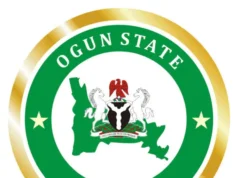Nigerians Struggle as Cooking Gas Price Surges by 70%
A 70 percent spike in the price of cooking gas has left millions of Nigerians grappling with rising household costs. The recent surge has forced many to reconsider their reliance on liquefied petroleum gas (LPG) for cooking, with some reverting to traditional methods like firewood and charcoal. Once hailed as a cleaner, more efficient alternative, LPG is now becoming increasingly unaffordable for ordinary Nigerians.
Data Reveals Drastic Price Hike
According to data from the National Bureau of Statistics (NBS), the average price for refilling a 12.5kg cylinder of cooking gas rose from N9,194.41 in August 2023 to a staggering N15,552.56 in August 2024—representing a 69.15 percent increase. This price hike has placed additional financial strain on households already struggling with high inflation and the cost of living.

Lagos-based web developer Abiodun Adeleke expressed his frustration on X (formerly Twitter), writing, “12.5kg cooking gas is now N19,000. Just months ago, it was N9,000. That’s a 100 percent hike in less than a year. How are people surviving this economy?”
Small Businesses Face Rising Costs
It’s not just individual households that are suffering. Small businesses, especially those reliant on cooking gas, have been hit hard by the price surge. Mary Olabuson, a caterer in Ibeju-Lekki, revealed that she recently had to walk away from a job due to the high cost of gas. “Gas alone took up a huge chunk of the budget. In the end, I had to turn down the offer because the client couldn’t afford my revised rate,” she explained.
Street food vendors are also feeling the pinch. Mohammed Ahmed, a street vendor selling fried yam, has been forced to raise prices and cut portion sizes to cope with rising gas prices. “My customers are upset and some say they will stop buying from me. But what choice do I have? Gas prices are out of control,” he lamented.
VAT Removal Fails to Ease Prices
Despite the federal government’s announcement in October 2023 of the removal of Value Added Tax (VAT) on LPG, prices have continued to climb. The volatility of Nigeria’s foreign exchange market is largely to blame, with gas importers struggling to access the foreign currency needed for transactions. As a result, the cost of imported LPG has soared, further exacerbated by the devaluation of the naira.
Olatunbosun Oladapo, president of the Nigerian Association of Liquefied Petroleum Gas Marketers, highlighted several factors contributing to the price hike, including rising international gas prices, high tax rates, vessel costs, and naira devaluation. “The situation is quite unfortunate because prices are going higher. Nigerian consumers are passing through very difficult times because they can no longer afford gas,” he said.

Nigeria’s Untapped Gas Resources
Ironically, Nigeria boasts an estimated 209 trillion cubic feet (TCF) of gas reserves, but the country has been unable to fully harness this resource due to low investment in the sector. Experts say that with proper infrastructure and investment, Nigeria could become a major exporter of natural gas, significantly lowering domestic gas prices. However, bureaucratic delays, poor policy execution, and foreign exchange challenges continue to hinder progress.
Regional Price Disparities Highlight Widespread Impact
An analysis of the NBS data reveals significant regional disparities in gas prices across Nigeria. The South-South region recorded the highest average retail price for refilling a 12.5kg cylinder at N16,524.00, followed by the South-East at N16,495.78. In contrast, the North-Central region reported the lowest price at N14,767.41.
For smaller LPG cylinders, the trend is similar. The average price for refilling a 5kg cylinder rose from N5,974.55 in July 2024 to N6,430.02 in August 2024, a 7.62 percent increase. On a year-on-year basis, the cost for a 5kg refill jumped by 56.25 percent, with the highest prices recorded in Benue, Sokoto, and Rivers states.
Inflation and Exchange Rate Woes
Nigeria’s inflation rate, which soared to 34 percent in recent months before slightly easing to 32.15 percent in August, continues to put pressure on consumer purchasing power. The devaluation of the naira has contributed to the escalating cost of living, with gas prices being just one example of how foreign exchange challenges are impacting everyday Nigerians.
Social Media Reactions to Rising Gas Prices
The surge in cooking gas prices has triggered an outcry on social media. Nigerians have taken to various platforms to voice their frustrations:
- @AbiodunAde (Nigeria) on X: “Gas prices have doubled in under a year. How are families supposed to survive this?”
- @MaryCooks (Nigeria) on Instagram: “I’ve had to turn down jobs because clients can’t afford the new rates. This gas price hike is killing small businesses.”
- @IAmAhmedStreetVendor (Nigeria) on X: “Raising my prices wasn’t easy, but I had no choice. Gas prices are through the roof.”
- @ToluEconomics (Nigeria) on Threads: “Nigeria has 209 TCF of gas reserves, but we still can’t harness it. What’s the hold-up?”
- @OladapoLPG (Nigeria) on Instagram: “Until we resolve forex issues and invest in gas infrastructure, gas prices will keep rising.”
- @ForeignInvestorUK (UK) on Threads: “Nigeria’s gas price crisis is a cautionary tale for energy-dependent economies. Local production is key.”
- @SokotoGasUser (Nigeria) on X: “I’m paying more for a 5kg cylinder than people in Abuja. The regional price differences are shocking!”
Conclusion
The dramatic rise in cooking gas prices has left Nigerians scrambling for alternatives and forced small businesses to make difficult adjustments. Despite the government’s efforts to remove VAT and stabilize gas prices, the broader economic challenges—foreign exchange volatility, high import costs, and inflation—continue to drive up the cost of living for Nigerians. As the country sits on vast untapped gas reserves, many hope that increased investment and better management of natural resources could provide long-term solutions to this crisis.
Join Our Social Media Channels:
WhatsApp: NaijaEyes
Facebook: NaijaEyes
Twitter: NaijaEyes
Instagram: NaijaEyes
TikTok: NaijaEyes





